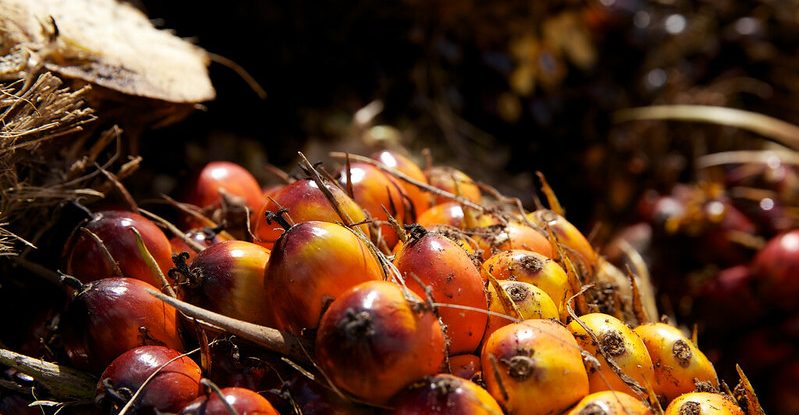A jurisdictional approach (JA) has the potential to enhance Indonesia’s district and national action plans on palm oil plantation sustainability, according to new research conducted by the Center for International Forestry Research and World Agroforestry (CIFOR-ICRAF) in four districts across Sumatra and Kalimantan. The work also underscores the advantages of involving local governments in spearheading the application of research and development.
Given the significant role of palm oil in Indonesia’s economy, which encompasses large- and small-scale producers, adopting a JA can help to mitigate the adverse effects of palm plantation activities, enhance natural forest governance, curb deforestation, and boost the production of fresh fruit bunches for sale. The JA initiative in Indonesia engages actors vertically across different levels, and horizontally across jurisdictions at the same level.
During a national workshop and dialogue held by the Global Landscapes Forum (GLF) on October 12, 2023 at CIFOR-ICRAF’s head office in Bogor, senior scientist Herry Purnomo noted that only 21 percent of palm oil in Indonesia is certified by the Roundtable on Sustainable Palm Oil (RSPO), and that JAs could help to boost this figure.
“JAs can address some of the key issues associated with a project-based approach, including leakage, additionality, permanence, social safeguards, certification exclusion, externality, and benefit sharing,” Purnomo said. Further, he said that the approach aligns well with Article 28, Paragraph 33 of the Indonesian Constitution, ensuring that natural resources are utilized for the prosperity of the people.
In jurisdictional programmes (JPs), all stakeholders collaboratively design the theory of change (ToC), theory of action (ToA), and monitoring and evaluation framework (MEF). Lessons learned vary across districts. As senior CIFOR-ICRAF landscape ecologist Sonya Dewi explained, “JAs can enhance overall governance based on principles of inclusivity, integration, and informativeness.”
The research focused on four districts: Pelalawan (Riau Province), Sintang (West Kalimantan Province), Pulang Pisau (Central Kalimantan Province), and Kutai Kartanegara (East Kalimantan Province). Criteria for district selection included palm plantation area, forest area, deforestation risk, peatland area, JA progress, and CIFOR-ICRAF’s experience there. The initiative involved 43 organizations in collaboration with governments, civil society, and producers.
Purnomo shared key findings, highlighting that JAs and ToC facilitate accommodating the voices and interests of multiple stakeholders, understanding local contexts and challenges, defining shared goals, articulating change, improving participation, and fostering collaboration. “JAs aim to address social, production, legality, and environmental issues, encompassing tenurial problems, supply chain challenges, land conflicts, and overlapping land use and interests,” he said.
Ade Muhammad Iswadi, the general secretary of the Sintang Civil Society Communication Forum (FKMS), detailed the ToC, ToA, and MEF process in JPs, which focuses on data amplification, planters’ capacity building, environmental governance, land dispute handling, Indonesian Sustainable Palm Oil System (ISPO) certification implementation, and palm product market access. Challenges in Sintang include human resource competence, partnership weaknesses, small profit sharing, unclear distribution paths for palm products, and difficulties securing investor commitments. Iswadi emphasized the urgency of human resource empowerment, given the influence of smallholder planters on broader success.
Hendrik Segah, a senior researcher at Palangkaraya University, outlined JA implementation in Kutai Kartanegara (Kukar) District, including its aim to reduce land-clearing and build biodiversity, boost supply chain management, and improve the livelihoods of people living around plantations.
Okto Yugo Setyo, vice coordinator of the Riau Forest Protection Network (Jikalahari), highlighted challenges experienced in Pelalawan District, which include a lack of: data on palm plantations, coordination between inter-governmental agencies, infrastructure investors, access to capital for small planters, and monitoring and governance on companies’ compliance with laws.
“The JP is designed to bring solutions to all of these challenges, such as to optimize small planters’ data, improve financial literacy, hasten One Map Policy implementation, and so on,” he said. The process involves 12 stakeholders from across government, private sectors, small-scale farmers, and civil society. Forum Kelapa Sawit Berkelanjutan Indonesia (FoKSBI, The Indonesia Palm Oil Platform) is the driving force for the implementation of JA for forest conservation and sustainable commodity development in the district.
In Pulang Pisau, FoKSBI is also assisting in the achievement of sustainability goals by addressing tenurial conflicts, limitations in skilled human resources, financial constraints, environmental pressures, and challenges stemming from decentralization policies. Discussants agreed that achieving JA goals requires the central government to provide incentives for districts. It’s also important to balance local and national finances through fair profit-sharing.
Marcello de Maria, an expert in science, policy, and decision-making at the University of Reading, provided a comparative perspective by sharing experiences in JA for soybean sustainability in Brazil. The challenges faced in Brazil resonated with those in Indonesia’s palm plantation sector, including land tenure issues, lack of harmonization, and inappropriate rules for sustainability standards.
“For harmonization and integration, we need participation, democratic decision making, and clear rules and governance that represents all stakeholders,” he said.
Acknowledgements
This research is funded by the Walmart Foundation.
We want you to share Forests News content, which is licensed under Creative Commons Attribution-NonCommercial-ShareAlike 4.0 International (CC BY-NC-SA 4.0). This means you are free to redistribute our material for non-commercial purposes. All we ask is that you give Forests News appropriate credit and link to the original Forests News content, indicate if changes were made, and distribute your contributions under the same Creative Commons license. You must notify Forests News if you repost, reprint or reuse our materials by contacting forestsnews@cifor-icraf.org.
